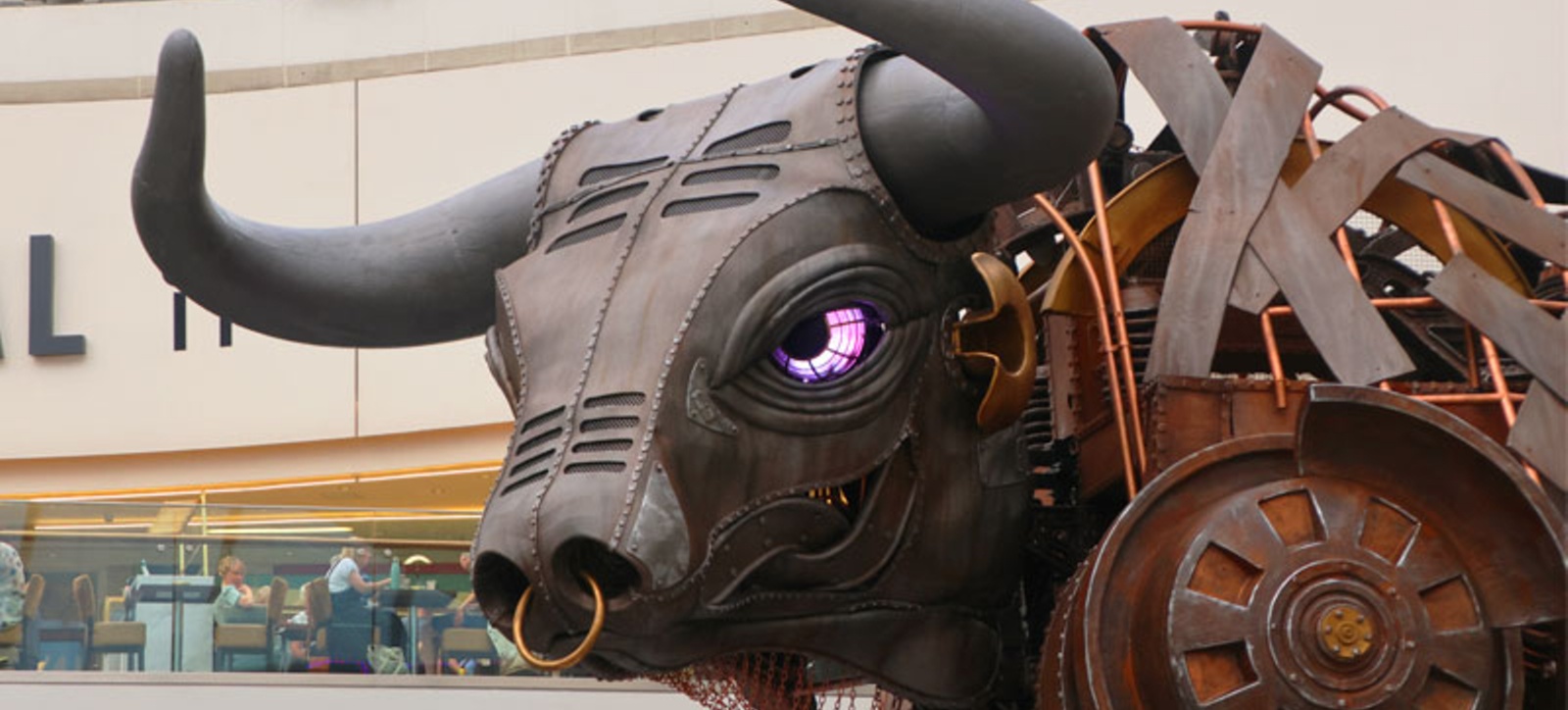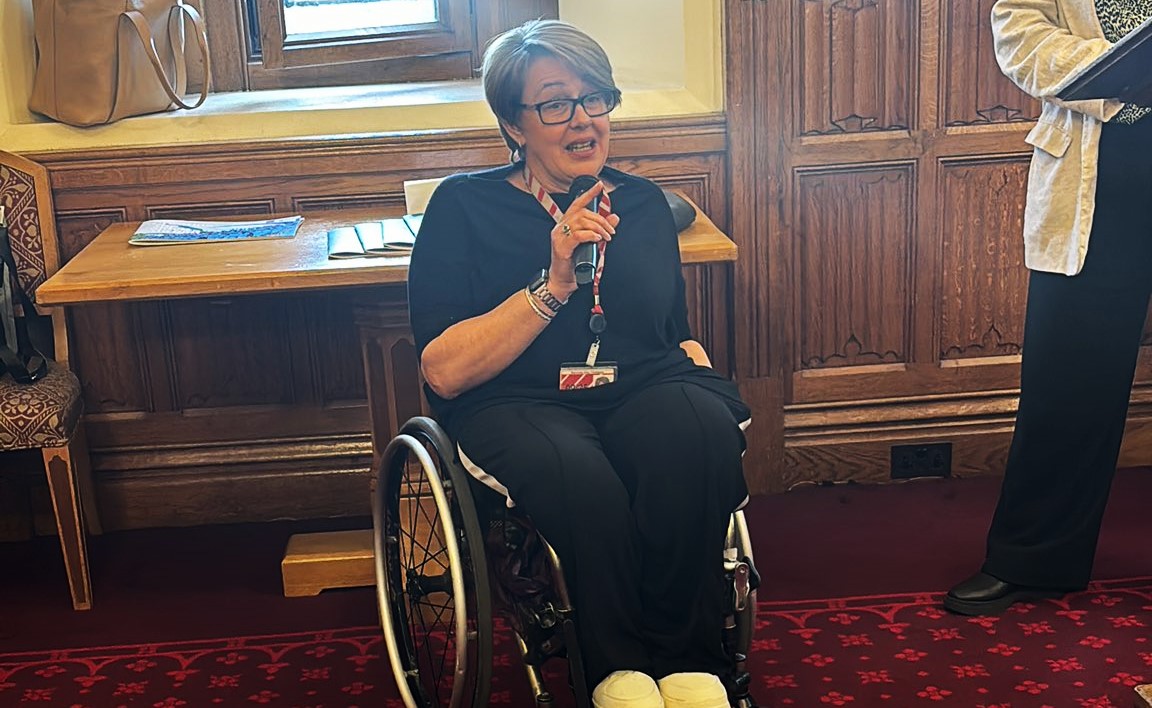
Bullish strategy: Creating a Golden Thread of best practice for major events could yield significant benefits.
There are many reasons to view Birmingham’s Commonwealth Games as a success. There are moments that will live long in the memory: who could forget Ozzy Osbourne’s surprise performance at the closing ceremony or the giant, steampunk bull that stole the show at the opening ceremony?
The organisers sold 1.3 million tickets – more than at any previous Commonwealth Games – and handed out more medals to women than men for the first time at a multi-sport event.
And an evaluation found that activities funded by the Games generated £1.2 billion of economic output, £79.5 million of social value, and the equivalent of 24,030 years of full-time employment.
Equally, recent analysis of the UK City of Culture programme found that it has generated more than £1 billion of additional investment into the local economies of the three host cities to date – Coventry, Kingston upon Hull, and Derry/Londonderry – all for a total programme cost of £103 million.
Despite this transformational success of individual events, questions have been raised about the lack of a clear UK-wide strategy for staging major sporting and cultural events, and whether they justify the expense to the taxpayer. For example, the UK Government spent in the region of £1 billion on major events in 2022.
As a report by the Culture, Media, and Sport Select Committee noted: “The Government is spending a lot of money on major events.
“Yet while individual occasions may well deliver memorable moments, we see no golden thread linking the events or tying them to a vision for the future of this country.”
Building on the success of recent major events in the UK
What we need is a framework that allows the systematic evaluation of major events. This will help us to determine the lasting value of these events to both the economy and society. It will also help us to learn from each event held and apply those lessons to future events.
This would provide the necessary information to create a UK-wide strategy for hosting major events to maximise the benefit for the nation.
That is why we have worked with Spirit of 2012 to publish an expert advisory report, Creating the Golden Thread, which we launched at the House of Lords.
While all major events differ in scale, duration, purpose, and location, they have common benefits. These represent the golden thread of opportunity to fulfil a national ambition.
This thread can be traced through potential for major events to promote excellence, ambition, and pride; connect new partnerships necessary for successful delivery; enable innovation and accelerate progress towards outcomes to ultimately leave a lasting legacy.
That legacy can be measured through five outcomes:
Economic value – the amount of economic growth and investment the event generates.
The stability and development of the event sectors – the number and quality of jobs created, the skills that workers and volunteers develop, and the infrastructure created.
Health and wellbeing – how the event can contribute to improved physical, emotional, and mental health and wellbeing.
Social and cultural value – how the event fosters inclusion, widens participation, and inspires civic pride.
Environmental sustainability – how the event limits its own environmental footprint, contributes to the journey towards net zero, and encourages sustainable behaviour.
To ensure that major events deliver successful outcomes and sustainable legacies, they require strategic planning, careful management, and collaboration from a diverse range of stakeholders.
However, many stakeholders involved in the event will have their own interests and priorities. The challenge is to encourage these stakeholders to see the benefits of working together towards a shared ambition.
Major events deliver the greatest value when stakeholders share a relentless focus on achieving their collective priorities.
These stakeholders should each have clearly defined roles and responsibilities across three key areas: aligning policy and investment, effective event management, and evaluation and knowledge exchange.
After extensive consultation and desk-based research on the impacts of major events, we have identified five recommendations to harness the contributions of each of these stakeholders.
1 Create a 10-year major events strategy
The key recommendation for policymakers is to bring together central and local government, the events industry, and investors to develop a 10-year strategy for major events.
This should build upon the existing strategies in Scotland and Wales, as well as the UK Sports Gold Framework, to create a unified approach that celebrates the diversity of the four nations.
The strategy should aim to maximise the social, cultural, sporting, and economic impact of events.
It should also prioritise continuity across events and identify opportunities to connect sporting, cultural, and ceremonial events within the overall calendar. This will provide a clear roadmap for managing the events ecosystem and will foster long-term growth and sustainability.
2 Develop a national evaluation framework
The DCMS should work with key stakeholders and lottery funders to create a national evaluation framework for major events.
This will help to consistently measure outcomes – using standardised metrics – across a wide range of major events and over an extended period of time.
Sharing this data will help to assess the impact of staging major events, improve accountability, and offer valuable lessons which can be applied to improve outcomes at future events.
3 Establish a data observatory for major events
Evaluations conducted after a major event are not currently stored in a central, open-access repository. This makes it hard to share lessons from individual events, or to articulate the collective impact of major events on the UK over time.
We recommend the creation of a National Major Events Data Observatory to address these challenges. We further outline the foundations for building a robust, shared, and tailored measurement framework for major events
This would allow us to assess the true value of major events, communicate the lessons we have learned to enhance future events, and make progress towards a long-term ambition for the UK.
4 Appoint major event managers
We recommend that the DCMS appoint a National Major Event Relationship Manager to work closely with designation destination and event relationship managers within each region.
These relationship managers who hold a crucial position, bringing together key stakeholders and clearly defining roles and responsibilities of each one.

This will help stakeholders to work together effectively to achieve their shared goals. This in turn will ensure resources are managed and risks are managed effectively, and maximise opportunities for synergy throughout the different stages of the event.
5 Include funding for legacy periods in all event planning
The impact of a major event extends far beyond its duration and affects the host community, infrastructure, economy, and cultural landscape.
Without adequate funding and planning for the post-event phase, the momentum gained from the event could be lost. This in turn could lead to missed opportunities for long-term benefits.
When developing the business case and plan for a major event, it is essential to include dedicated funding, not just for the event itself, but all for the legacy period. This will ensure that the positive impact of the event can be maximised and sustained over time.
Organisers must be in a position to demonstrate the continued benefits of major events to corporate supporters, who can contribute to continued activity during the legacy period for relatively small amounts of money.
The benefits of creating a Golden Thread for major events
Following these recommendations will help organisers to unite stakeholders at different stages of the event lifecycle to deliver a successful event that is more than the sum of its parts.
It will create a common framework to evaluate the success of major events and allow organisers to learn from previous events. It will also help to form a compelling ten-year ambition for major events and a strategic approach to maximise the benefits they deliver for the nation.
Last but not least, it will create a more effective major events ecosystem to ensure that future events benefit from better management and operations.
The UK has a track record for staging major events that capture the attention and imagination of the international community.
By creating the golden thread we can support and inform the development of a UK-wide Major Events strategy. We can put forward a compelling case for continuing to host these events in future and ensure they deliver the maximum benefit for the UK. That is an ambition that the four nations, culture, sport and civic sectors all share.
Further reading
National ambition for major events strategy launches at House of Lords
Why measuring social impact is good for business
Jonothan Neelands is Professor of Creative Education and teaches Leadership and the Art of Judgement on the Executive MBA, Executive MBA (London) and the Global Online MBA.
Haley Beer is Associate Professor of Operations Management and lectures on Leading and Enhancing Diversity on the Full-time MBA, Executive MBA, Executive MBA (London) and the Global Online MBA. She also teaches Foundations of Business on the Foundation Year.
Learn more about strategy on the four-day Executive Education programme Creating Strategic Advantage at WBS London at The Shard.
For more articles on Strategy and Organisational Change sign up to the Core Insights newsletter.




 X
X Facebook
Facebook LinkedIn
LinkedIn YouTube
YouTube Instagram
Instagram Tiktok
Tiktok